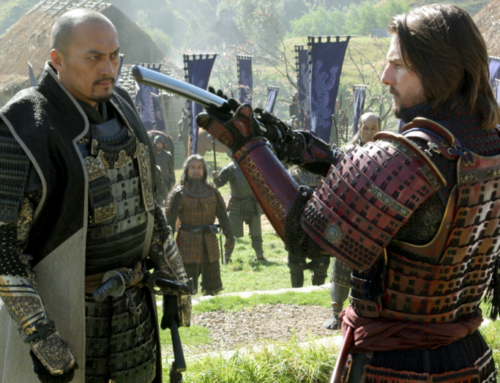Fortitude and Engaging Our Obstacles
April 30, 2017
Categories: Fortitude
We all experience difficulties and obstacles in our lives. Sometimes they are little, but sometimes they are big. For example, a few years ago, my good friend Jamie Aten was diagnosed with Stage 4 colon cancer. I walked with him through a very difficult and scary time in his life. He didn’t know if he was going to make it, and he was scared for what that might mean for his wife and daughters.
What do we do when we experience difficult times like this? How do we react? Trouble and struggle are universal experiences—we can’t get through life without encountering them. I’m not interested in figuring out how to avoid obstacles—that would be impossible. But I am interested in how we can engage with our obstacles and come out the other side better and stronger than we were before.
That’s where I think the idea of fortitude comes in. In our research, we have been defining fortitude using three components. First, fortitude involves faith. As Christians, we believe that God is at work, even in the midst of our pain and struggles. Second, fortitude involves hardiness. Hardy people are tough. They don’t go down after the first punch. Finally, fortitude involves meaning-making. It’s important to be curious about our obstacles and think about how they might fit into the bigger picture of our lives.
One of the most difficult things about obstacles is to stay engaged with them. Our natural tendency is to avoid pain and escape. We might do this physically—actually remove ourselves from the situation. But even if we can’t do that, we often disengage cognitively (e.g., try not to think about it, distract ourselves with watching television or surfing the internet) or emotionally (e.g., stuff our feelings, numb our feelings with our addictions).
Here’s the problem: even though disengaging might bring us a small amount of relief in the short run, we give up any chance to grow from our struggle.
To grow from our struggle or obstacle, we have to engage with fortitude. Our character is like a muscle—it grows under tension and strain. If we disengage from our pain and struggle, it’s like skipping our workout at the gym. Our character doesn’t have the opportunity to grow.
Also, if we stay engaged, there are often opportunities for something good to come out of our obstacle. But to do that, we need fortitude to allow us to weather the storm of the obstacle we find ourselves in. I remember one time I got sharply criticized by a leading researcher in my field, because I failed to cite him in one of my publications. I was just beginning my career, and I felt scared and upset. I could have disengaged and ignored the email, but instead, I decided to engage, apologize, and start a conversation with him. This ended up leading to a mutually beneficial collaborative relationship that has lasted for several years.
Bottom line: there could be opportunities in your obstacle, if you have the fortitude to stick with it.
Related Thoughts
No Comments
Leave A Comment

Subscribe To My Newsletter
Join my mailing list to receive the latest blog posts.
Receive my e-book “The Mental Health Toolkit” for free when you subscribe.



[…] has a ‘why’ to live can bear almost any ‘how.’” I think there’s something to this idea. Life is full of difficulties and hardships. As human beings, we need a compelling “why” to feel energized when we wake up each […]
[…] Amor Fati means love of fate. How can we not just accept our circumstances, but actually love them? You can’t always choose what happens to you, but you can always choose how you respond to it. You can choose to find the opportunity in your obstacle. […]
[…] try to distract yourself from your difficulty and struggle. Don’t numb out with your addictions. Engage with your obstacle, be present, and be open to what your struggle might have to teach […]
[…] Attitude. Have a positive attitude. Don’t complain. When tough things happen, don’t get down. Instead, look at them as an opportunity to learn and grow. […]
[…] 3 examples for how getting injured might be good in your life. For example, maybe it could help build your character or fortitude. Maybe it could help you connect and empathize with others who are struggling. See if this exercise […]
[…] discipline happens without an imposed external structure. We have internalized the strength and fortitude we need to overcome our obstacles and make progress toward our most important […]